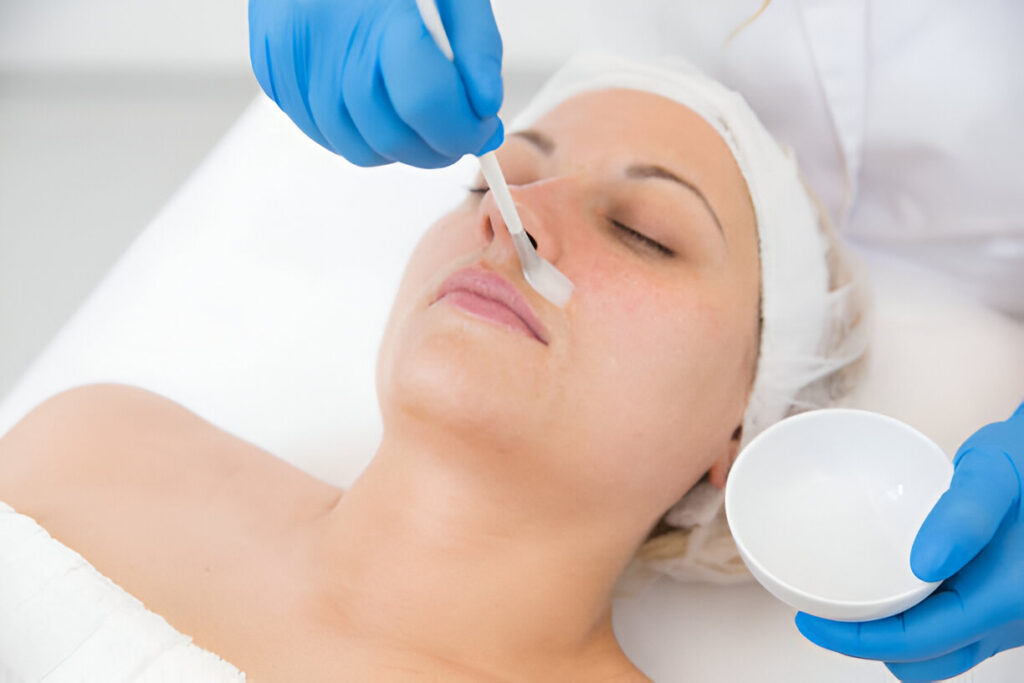Yes, does skin get darker after chemical peel is a common outcome due to inflammation and melanin response. This condition, called hyperpigmentation, is usually temporary. With sun protection and correct aftercare, most cases fade safely.
Many people ask does chemical peel darken skin before choosing treatment. Chemical peels remove damaged skin to improve tone and texture. However, some people notice dark patches during healing. This happens when pigment forms in response to skin injury. In most cases, this fades with time and care.
What Is Chemical Peel?
A Chemical Peel in Dubai is a skin treatment that removes the outer damaged layers of skin. It improves texture, acne scars, uneven tone, and pigmentation. It works by triggering skin renewal.
Can You See Results After One Peel?
Why Skin Gets Darker After a Peel
- Can chemical peel cause hyperpigmentation through inflammation
- Increased melanin production during healing
- Sun exposure after treatment
- Picking or scratching peeling skin
- Using harsh skincare products
These factors explain why is my skin darker after microneedling and peels, as both create controlled skin injury.
How Long Will a Chemical Peel Last?
How Hyperpigmentation Forms (Step-by-Step)
- The chemical peel causes controlled skin injury
- The skin produces melanin to protect itself
- Dark patches form during healing if inflammation or sun exposure occurs
This process explains does skin get darker after chemical peel and can chemical peel cause hyperpigmentation.
How Can I Cure My Teeth Without a Root Canal?
Is It Permanent?
Many people ask is hyperpigmentation after chemical peel permanent and is chemical peel permanent for hyperpigmentation.
In most cases, no. Pigmentation usually fades within weeks or months. However, without sunscreen or proper care, dark patches may last longer.
Does Chemical Peel Remove Pigmentation?
People also ask does chemical peel remove hyperpigmentation permanently.
Chemical peels can improve pigmentation, but results depend on skin type, sun protection, and post-treatment care. It is not always permanent.
How to Treat Darker Skin After a Peel
- Use sunscreen every day
- Apply vitamin C or niacinamide
- Use azelaic acid or kojic acid
- Avoid heat and sun
- Follow gentle skincare routines
These steps are part of how to treat hyperpigmentation after chemical peel and how to remove patches from face safely.
Book a Skin Consultation at YAH Polyclinic
If you are concerned about pigmentation, dark patches, or uneven skin tone after a chemical peel, YAH Polyclinic offers personalized skin consultations to help assess and manage your skin safely. Our trained skincare professionals provide evidence-based advice and treatment options tailored to your skin type, tone, and concerns, supporting healthy and even-looking skin through every stage of recovery.
FAQs (People Also Ask)
Does skin get darker after chemical peel?
Yes. Temporary darkening is common during healing due to increased melanin.
Does chemical peel darken skin permanently?
No. Most cases fade with time and proper aftercare.
Is hyperpigmentation after chemical peel permanent?
Usually not. With sunscreen and treatment, pigment fades.
Can chemical peel cause hyperpigmentation?
Yes, especially in darker skin types or with poor aftercare.
Does chemical peel remove hyperpigmentation permanently?
It can reduce pigment, but results depend on skin type and protection.
Why is my skin darker after microneedling or peel?
Both treatments trigger melanin as part of the healing process.
Author
Reviewed by: Clinical Skin Team, YAH Polyclinic
Last Updated
12 January 2026





